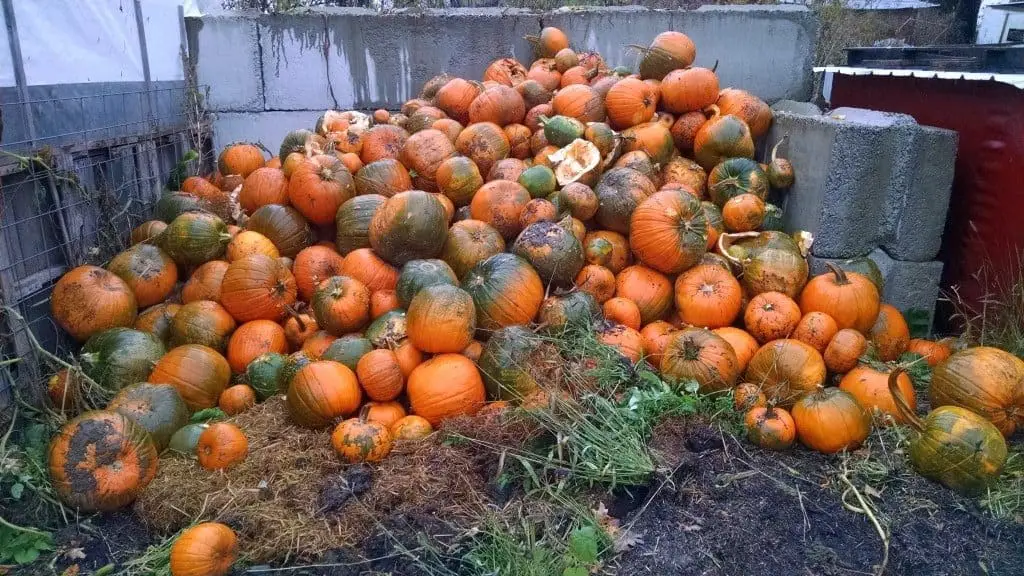AJ and I picked 8 cubic yards of pumpkins last night. They came from the Mast family farm, the folks whose maple syrup we’ve recently added to our store. We picked up the obviously unsaleable ones this time, then we’ll go back after Halloween to clear the rest of the field.
Pumpkins are an interesting crop, being a food item that is now grown almost entirely for non-food uses. Since decorative concerns outweigh all other considerations, nobody wants to buy them unless they are in great cosmetic condition. So, besides the obvious rejections due to green skin (unripe), cracks, or rot, many others are rejected because they are misshapen or have short/missing stems. Pumpkins are a sharply seasonal product. They sell from mid-September to a few days before Halloween, but after Halloween they are commercially worthless no matter their condition.
Gleaning this crop turns out to be a win-win. It saves the Masts the extra effort of discing the field to bust up the pumpkins before plowing. And it provides our pigs with a few weeks of vegetables. Feeding produce to pigs is hard to justify economically in terms of weight gain, but I value the less tangible benefits of vitamins (especially carotene in the case of pumpkins) and plant fibers in creating a more digestible and natural diet for the pigs, as compared to the standard all-grain diet fed to most pigs.
I’ve heard for years that pumpkin seeds help livestock eliminate internal parasites. Like most non-medicated interventions, I can’t find any studies to validate this use. I did find one small study on goats that demonstrated no improvement. If anyone knows of any related research, I’d be interested in reading more. [Edit 22 Oct 2016: I found one study demonstrating that pumpkin seeds and calamus root were each more effective than Ivermectin at reducing Oesophagostomum nematodes. Tansy was almost as effective. Interestingly, garlic wasn’t nearly as effective as the other natural cures, despite its popularity among many organic farmers. Those particular parasites aren’t endemic here, but the possibilities are encouraging.]

1 thought on “Pumpkins a Plenty”
This was especially interesting to me. You and AJ make quite a team!